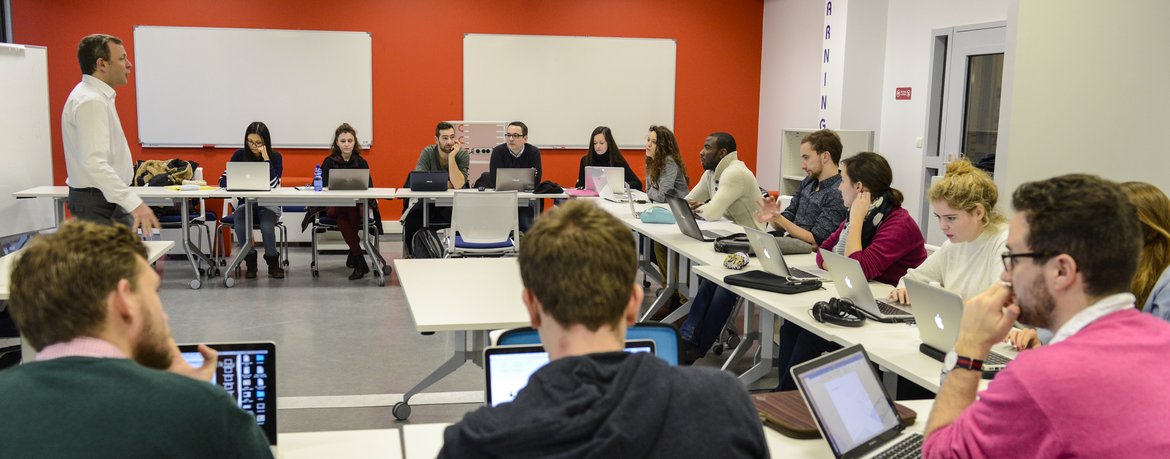Stony Brook University Admissions: Everything You Want to and Need to Know

Overview of Stony Brook University
Stony Brook University is a public research institution situated on Long Island, New York City. The institution offers 119 majors and minors for undergraduate students to select from. A robust student/faculty ratio supports students, and professors take a personalized approach to the teaching and learning process. Outside of the classroom, students will find plenty of opportunities to engage with the campus community via the university’s many clubs and organizations. The Stony Brook Seawolves play in the America East Conference.
Enrollment
- Total Enrollment: 26,256 (17,522 undergraduates)
- Gender Breakdown: 52 percent male/48 percent female
- 93 percent full-time
Cost of Attendance Information
- Tuition and Fees: $10,076 (in-state); $28,528 (out-of-state)
- Books: $900
- Room and Board: $14,196
- Other Expenses: $1,868
- Total Cost: $27,040 (in-state); $45,492 (out-of-state)
Financial Aid Information
- Percentage of New Students Receiving Aid: 78 percent
- Percentage of New Students Receiving Types of Aid
- Grants: 71 percent
- Loans: 42 percent
- Average Amount of Aid
- Grants: $9,413
- Loans: $6,132
Academic Programs Offered
- Most Popular Majors: Health Professions and Related Programs; Biological and Biomedical Sciences; Business, Management, Marketing, and Related Support Services; Engineering; and Psychology
Retention and Graduation
- First-Year Student Retention (full-time students): 90 percent
- Transfer-Out Rate: 17 percent
- 4-Year Graduation Rate: 55 percent
- 6-Year Graduation Rate: 74 percent
NCAA Athletic Programs
- Men’s Sports: Baseball, Basketball, Cross Country, Football, Lacrosse, Soccer, Track and Field
- Women’s Sports: Basketball, Cross Country, Lacrosse, Soccer, Softball, Swimming and Diving, Tennis, Track and Field, Volleyball
Overview of Stony Brook University Admissions
Stony Brook University is one of the most selective schools in the State University of New York (SUNY) system. Students whose SAT/ACT scores and GPA are within the institution’s requirements have a good chance of being admitted. This institution has a robust admissions process that involves a multitude of academic measures. Applicants must complete an online application. A persuasive essay and glowing recommendation letters can bolster your application, along with being involved with student organizations and attempting a challenging course load. Students with unique talents and accomplishments can still receive strong consideration even if their GPAs are outside of the admissions offices mean range. Interested students should check out the university’s website, which has helpful tips and contact information for the admissions offices. Students should make a campus visit to determine if the institution is a good fit for them.
Admissions Data
During the 2018-19 admissions phase, Stony Brook University had an acceptance rate of 42%. For every 100 students who submitted applications, 42 students gained admission, making Stony Brook’s admissions process competitive.
SAT Requirements and Scores
During the 2018-19 admissions phase, 85% of students provided SAT scores. This admissions data reveals that most of Stony Brook’s students score within the top 20% nationally on the SAT. 50% of students admitted to Stony Brook scored between 600 and 680 on the evidence-based reading and writing part, while 25% scored under 600 and 25% scored over 680. 50% of students scored between 630 and 740 on the math part, while 25% scored under 630, and 25% scored over 740. Applicants with a cumulative SAT score of 1420 or higher will have particularly competitive chances at Stony Brook.
ACT Requirements and Scores
During the 2018-19 admissions phase , 25% of students provided ACT scores. This admissions data reveals that most of Stony Brook’s students score within the top 18% nationally on the ACT. The median 50% of students admitted to Stony Brook received a cumulative ACT score between 26 and 31, while 25% scored over 31, and 25% scored under 26.
GPA
In 2019, the mean high school GPA for Stony Brook University freshman was 3.83, and over 80% of students had mean GPAs over 3.5 Successful applicants to Stony Brook have primarily B grades.
Safety Net Schools: Easy to Gain Admission
If past admission data predicts that you would be a competitive candidate for Stony Brook University, then it should be easy for you to gain admissions to the schools below. If Stony Brook University is currently out of your reach, then you are sure to be a competitive candidate for the schools below.
University of Massachusetts Amherst, Drexel University, Syracuse University, United States Military Academy, Penn State University Park, University of Cincinnati, Hofstra University
Same Tier: Just As Hard to Gain Admission
If you’re a competitive candidate for Stony Brook University, then you should have an equal chance of gaining admissions at these schools.
University of California, Santa Barbara, University of Texas at Austin, University of Texas at Dallas, University of Washington, California Polytechnic State University, San Luis Obispo, University of Georgia, University of Connecticut
Reach Institutions: Gaining Admissions Will be More of a Challenge
These schools are more challenging to gain admission into than Stony Brook University. If you improve your GPA and SAT/ACT scores, then you’ll be a competitive candidate for these schools.
University of Michigan, Emory University, Boston University, University of California, Berkeley, Rensselaer Polytechnic Institute, Villanova University, Binghamton University
Applying to Stony Brook University
Application Deadline: January 15
Undergraduate Admissions Website:
https://www.stonybrook.edu/undergraduate-admissions/
Undergraduate Application Link(s):
https://www.stonybrook.edu/undergraduate-admissions/apply/freshman/
Graduate Admissions Website:
https://www.stonybrook.edu/graduate-admissions/
Graduate Application Link(s):
https://www.stonybrook.edu/commcms/graduate-admissions/apply.php






